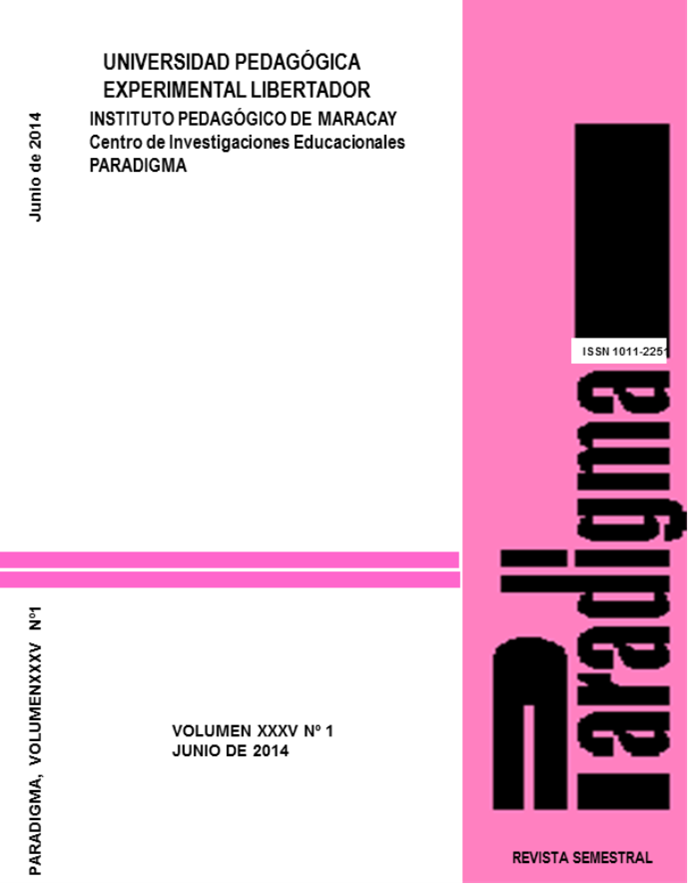EXPERIENCIA DOCENTE EN EL CONTEXTO DE LA CRISIS UNIVERSITARIA VENEZOLANA
DOI:
10.37618/PARADIGMA.1011-2251.2014.p149-166.id531Resumen
ResumenEn mayo de 2013 la Federación de Asociaciones de Profesores Universitarios de Venezuela convoca a un paro docente indefinido; profesores y estudiantes de la Universidad Simón Bolívar se unen al llamado. En este contexto, la investigadora diseña un plan de aprendizaje autónomo en línea (PAAL) para asistir a sus estudiantes. Este artículo tiene el propósito de dar cuenta de los resultados de este plan en varios ámbitos. Por una parte, en la forma como los estudiantes respondieron al PAAL, su participación y percepción; y por otra, en su rendimiento académico, cómo se relacionó con la participación y cómo se diferenció de un curso presencial equivalente anterior (grupo control). Esta es una investigación cuantitativa, de campo, ex post facto, con alcance explicativo, que obedece a un diseño transversal. Los resultados muestran, en cuanto a lo primero, que los estudiantes respondieron satisfactoriamente al tratamiento, mostrando un grado de participación moderado-alto y calificándolo como muy útil. En cuanto a lo segundo, el rendimiento del grupo experimental, en la prueba de logro de lectura de inglés como lengua extranjera, no mostró correlación con su participación en el plan; no obstante, su desempeño fue significativamente superior al del grupo control. Estos resultados sugieren que el diseño de ambientes de aprendizaje en línea es una estrategia muy valiosa, particularmente en momentos de crisis universitaria, y que la virtualidad potencia la libertad, en el sentido que aumenta la posibilidad de que el estudiante logre aquello que aspira, i.e. rendir en las evaluaciones.Palabras clave: crisis, inglés como lengua extranjera, aprendizaje en línea, rendimiento académico, libertad.Teaching experience in the context of the Venezuelan university crisis.AbstractIn May 2013, the Federation of Venezuelan University Professors Associations called for a indefinite teaching strike; professors and students from Universidad Simón Bolivar responded to the call. In this context, the researcher designs an autonomous on line learning plan (PAAL) in order to assist her students during and after the strike. The purpose of this article is to give account of the plan’s results in several realms. On the one hand, it regards the response of these students to the plan, their participation and perception. On the other hand, it considers their academic achievement, how it relates to their participation and how it contrasts to an equivalent former class (control group, face-to-face). This is a transverse explicative after the fact field research framed in the quantitative approach. Results show, firstly, that the students responded satisfactorily to the PAAL, their involvement’s degree was higher-moderate. Also, the student’s perception about the online learning program was very positive and they qualified it as very useful. Secondly, the relationship between academic achievement and participation in the PAAL was not significant; nonetheless, the experimental group’s academic achievement in the English as a foreign language reading comprehension test, was significantly higher than the control group’s performance. These results suggest that the design of on line learning environments can be a very valuable strategy during a university crisis, and that it can empower freedom, in the sense that it increases the student’s possibilities to achieve what he values, i.e. to perform satisfactory in the tests.Key words: crisis, English as a foreign language, online learning, academic achievement, freedom.Descargas
Los datos de descargas todavía no están disponibles.
Descargas
Métricas
Visualizações do artigo: 101 PDF downloads: 23
Cómo citar
Fernández (USB-Venezuela), N. (2014). EXPERIENCIA DOCENTE EN EL CONTEXTO DE LA CRISIS UNIVERSITARIA VENEZOLANA. PARADIGMA, 35(1), 149–166. https://doi.org/10.37618/PARADIGMA.1011-2251.2014.p149-166.id531
Número
Sección
Artículos


 English
English
 Español (España)
Español (España)
 Français (France)
Français (France)
 Português (Brasil)
Português (Brasil)




















































